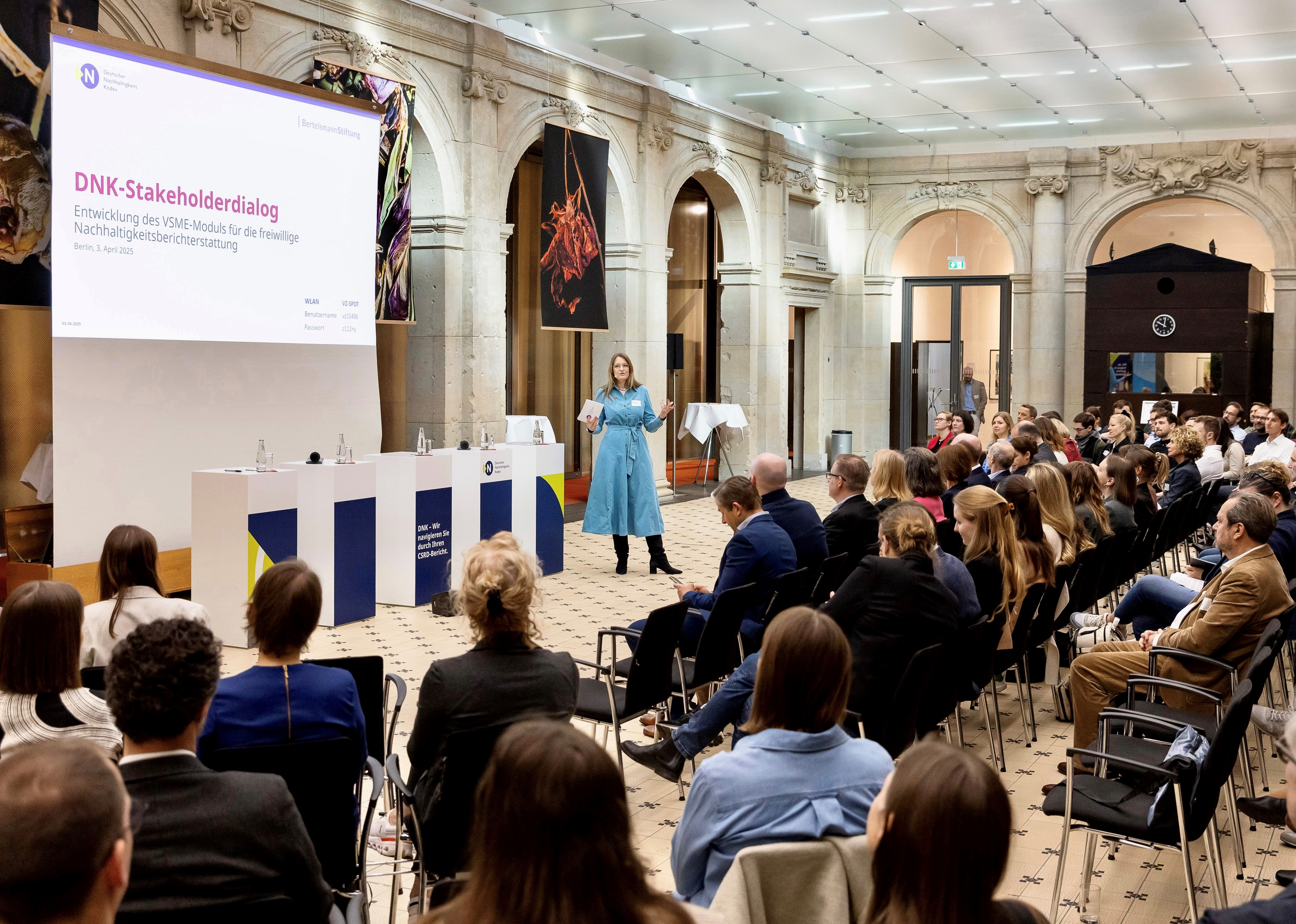What we do
Sustainability reports are becoming increasingly important – and not only because customers, investors and business partners expect more transparency. Internally too, they provide valuable strategic insights for aligning business models to be more efficient, sustainable and competitive. But how do you get started with sustainability reporting? Small and medium-sized enterprises in particular often face major challenges here – limited resources, lack of prior experience and high complexity, to name a few. This is precisely where the new Sustainability Code services of the DNK come in.
Previously: DNK declarations based on our own reporting standard
The German Sustainability Code (DNK) was developed in 2010 by the German Council for Sustainable Development (RNE) in a multi-stakeholder dialogue – together with representatives from politics, the financial market, business and civil society. Since the end of 2011 we have provided targeted support for companies for their sustainability reporting. In the initial phase, businesses could publish so-called DNK declarations based on our own reporting standard. This experience provides the foundation for our enhanced services and offerings.

Today: Supporting your CSRD-compliant reporting
In 2025 we launched a comprehensive range of Sustainability Code services that take the hard work out of sustainability reporting for businesses. They are aimed both at companies that are subject to CSRD-compliant mandatory reporting – either directly or indirectly – and at those reporting voluntarily in line with the VSME. The cornerstone is our DNK Platform, on which companies can create their digital reports free of charge.
We develop our services in conjunction with various stakeholders. Our close dealings with them gives us here at the DNK a deep insight into the specific needs of the businesses involved, especially German SMEs. Which is why we offer a particularly user-friendly and needs-based reporting tool that is also recognised by leading industry bodies such as the chambers of commerce and industry, chambers of crafts as well as professional and industry associations.
How the DNK developed from the previous reporting standard into a CSRD-compliant reporting tool
What challenges does sustainability reporting present for businesses – and how does the DNK help? Watch our video to find out how the DNK Platform, DNK Checklists and DNK Sustainability Campus with its Helpdesk can specifically help you. (English subtitles available!)
In the future: All the reports in one place
It is already possible to publish your report publicly on the DNK Platform if you wish – perhaps for customers, business partners or banks – to meet the growing demand for transparency on matters of sustainability.
In the medium term, the DNK hopes to become a centralised one-stop shop, where you can fulfil different reporting obligations efficiently and from an integrated view. Our ultimate aim is to bring together the different requirements on one platform. With our IT infrastructure, we already have the technical basis in place and will continue to develop it further.
Our aim is to make sustainability reporting as easy as possible for you and your colleagues.
Sustainability reports still matter
With the new CSRD thresholds adopted in December 2025, fewer companies than originally planned will be legally required to report in future. As DNK, we are in close contact with many companies and can clearly see that many are continuing their efforts, utilising the expertise they have already built up and consciously opting for voluntary reporting in accordance with the VSME standard. In addition, many of these companies continue to be part of the value chains of companies that are subject to reporting requirements. This means that a certain amount of data collection and sharing remains necessary. Business partners, investors and customers are also increasingly expecting transparency on sustainability issues. With our new VSME module, we specifically support companies that are not subject to reporting requirements in applying the voluntary VSME reporting standard.

Official milestone: The DNK as part of the German Sustainable Development Strategy
The German Sustainable Development Strategy adopted by the federal cabinet in January 2025 sees the DNK as an official Indicator (8.6). The aim is to see a considerable jump in the number of voluntary sustainability reports based on the DNK by 2030. And this is precisely where we come in – with our VSME module for companies reporting voluntary.
Learn moreThis page was last updated on 21 January 2026.

